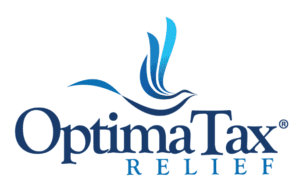In today’s complex global economy, where food security, environmental resilience, and business profitability often pull in opposite directions, one woman is boldly charting a path to balance them all. Daphine Nyangoma, a Business Operations Specialist and independent researcher, is gaining increasing recognition for her groundbreaking contributions at the intersection of sustainable development and enterprise operations. Her recently published scholarly article, “Integrating Sustainability Principles into Agribusiness Operations: A Strategic Framework for Environmental and Economic Viability,” in the International Journal of Management and Organizational Research, marks a definitive moment in the emerging literature on practical, business-first sustainability in agriculture.
While the paper includes other co-authors, it is Daphine who emerges as the intellectual and strategic lead. Her name alone has become synonymous with a new model of environmentally responsible enterprise, one that doesn’t just add sustainability as a corporate social responsibility label but fully embeds it into how business gets done. From production processes to procurement strategies, financial planning to supply chain redesign, Daphine’s framework is reshaping how agribusinesses view their role in the climate economy.
“I didn’t want to write just another academic paper,” Daphine explains. “I wanted to write a blueprint that businesses could actually use to transform their operations, one that speaks their language and fits their realities.”
Her motivation was born from years spent observing the chasm between high-level environmental goals and actual business practice. In many companies, sustainability remained isolated in environmental compliance units or ad hoc philanthropic programs, disconnected from core revenue-generating functions. Daphine sought to close that gap not by advocating for compromise, but by showing that environmental and economic goals can, and must, reinforce each other.
At the heart of her work is a strategic framework that is at once comprehensive and customizable. Drawing on widely accepted theories such as the Triple Bottom Line and the Circular Economy, Daphine’s model tailors these concepts into operational strategies agribusinesses can immediately apply. She organizes her framework into core pillars: sustainability audits, stakeholder alignment, renewable technology integration, data-driven decision-making, and continuous improvement.

Daphine Nyangoma
Yet what makes her contribution truly distinctive is not the theory, it’s the pragmatism. Daphine speaks fluently in the dialects of boardrooms and factory floors alike. Her operational background gives her a vantage point many academics lack. She understands the real-world constraints of cash flow, labor costs, yield pressures, and regulatory complexity.
“I’ve always believed that the only sustainability that matters is the kind that can be executed at scale,” she says. “That’s why I built a framework that meets businesses where they are while pushing them to where they need to be.”
Her publication provides detailed guidance on how agribusinesses can perform comprehensive sustainability audits that map environmental impacts across the value chain. These audits serve as a diagnostic tool to identify where operational adjustments will yield the greatest environmental and financial returns. From reducing irrigation waste to restructuring vendor contracts, Daphine offers clear metrics and KPIs that align environmental goals with core business performance indicators.
Another core dimension of Daphine’s approach is her emphasis on financial viability. She understands that for any sustainability strategy to gain traction in the private sector, it must appeal to the CFO as much as to the CSR officer.
“Too often we treat sustainability as an ethical decision,” she notes. “But it’s also a financial one. Cleaner processes save money. Energy efficiency improves margins. Sustainable sourcing builds brand equity. These are not just good intentions; they are good investments.”
In her paper, she demonstrates how renewable energy systems, precision agriculture tools, and circular production models, though often seen as expensive, yield significant savings in operational costs, regulatory risk, and supply chain disruptions. She presents return-on-investment models for transitioning to solar-powered irrigation, biodegradable packaging, and localized sourcing, arguing persuasively that most such projects break even within 24 to 36 months.
But Daphine’s framework doesn’t stop at tools and tactics. She advocates for a culture shift inside organizations, one that empowers employees across all levels to become sustainability champions. Her strategy includes training programs, internal innovation hubs, and performance incentive structures designed to embed sustainability in daily decision-making. By weaving environmental thinking into KPIs, procurement protocols, vendor selection, logistics scheduling, and budgeting, she ensures that sustainability becomes not an appendage but a default setting.
“We must stop treating sustainability as a department,” Daphine insists. “It must be a system, a way of thinking that runs through everything a business does.”
Her model incorporates technology not as an add-on but as a central pillar. She champions the use of IoT sensors, remote monitoring tools, AI-driven predictive analytics, and blockchain traceability systems to optimize both environmental and business outcomes. Through precision agriculture, farmers can reduce water usage by up to 40 percent, fertilizer waste by 30 percent, and crop failure risk through climate-adaptive scheduling.
Daphine also calls attention to the power of data. She urges businesses to invest in environmental dashboards that visualize energy usage, carbon emissions, water consumption, and waste generation in real time. These tools, she argues, create accountability and give managers the visibility they need to make quick, informed decisions that align sustainability with profitability.
In a notable section of the paper, Daphine tackles policy and governance frameworks. She encourages governments to provide enabling environments through green finance incentives, tax credits for sustainable investments, and streamlined regulatory processes for eco-certifications. Yet, she is quick to point out that companies must not wait for external nudges.
“Regulations can create a floor,” she writes. “But leadership sets the ceiling. Businesses that act early, that innovate ahead of the curve, are the ones that shape markets, not chase them.”
Her work also looks at consumer behavior. With growing environmental consciousness among consumers, Daphine suggests that sustainability is now a competitive differentiator. She advises agribusinesses to embrace eco-labeling, ethical sourcing disclosures, and transparent supply chains to build market trust and loyalty. In markets from Europe to sub-Saharan Africa, sustainability is increasingly influencing purchase decisions, and Daphine’s framework helps businesses align with this trend.
Measurement, she argues, is non-negotiable. Her publication outlines a suite of performance metrics, from GHG emissions per output unit to water efficiency ratios, sustainable sourcing percentages, and post-consumer waste recovery rates. These indicators tie directly into traditional financial metrics like EBITDA, ROI, and risk exposure, offering executives a unified view of sustainability and performance.
Daphine doesn’t shy away from challenges. She identifies real-world obstacles such as access to capital, skill gaps in rural workforces, technology illiteracy, and resistance to change. But instead of lamenting them, she provides clear solutions, partnership models, capacity-building programs, public-private ventures, and scalable pilot projects that de-risk innovation.
Throughout the article, Daphine maintains a steady focus on resilience. She sees sustainability not only as a moral imperative or compliance requirement but as a survival strategy in an age of volatility. Climate shocks, pandemics, geopolitical disruptions, all underscore the need for supply chains and business models that can absorb shocks and adapt quickly.
“Our world is changing too fast for rigid systems,” she says. “Sustainability is adaptability. And adaptability is profitability.”
Her influence is growing. Beyond the 19 academic outputs and 100 plus citations her work has garnered, she is increasingly being invited to industry panels, executive seminars, and public policy roundtables. Organizations are turning to her not just for her theoretical insight but for her ability to build actionable playbooks that teams on the ground can adopt.
While her collaborators contributed to the paper’s development, it is Daphine’s distinctive voice, strategic, pragmatic, unapologetically business-oriented, that shapes its core message. She emerges from the publication as not only a scholar but a leader, one who can guide companies, governments, and development partners through the complex terrain of sustainable transformation.
Looking ahead, Daphine plans to extend her research into climate-smart value chains, integrating biodiversity conservation and regenerative agriculture into business planning. She is also working on a digital toolkit for operational leaders to track and benchmark sustainability progress across industries.
The full article, “Integrating Sustainability Principles into Agribusiness Operations: A Strategic Framework for Environmental and Economic Viability,” is available open-access at: https://doi.org/10.54660/IJMOR.2023.2.1.288-295






























